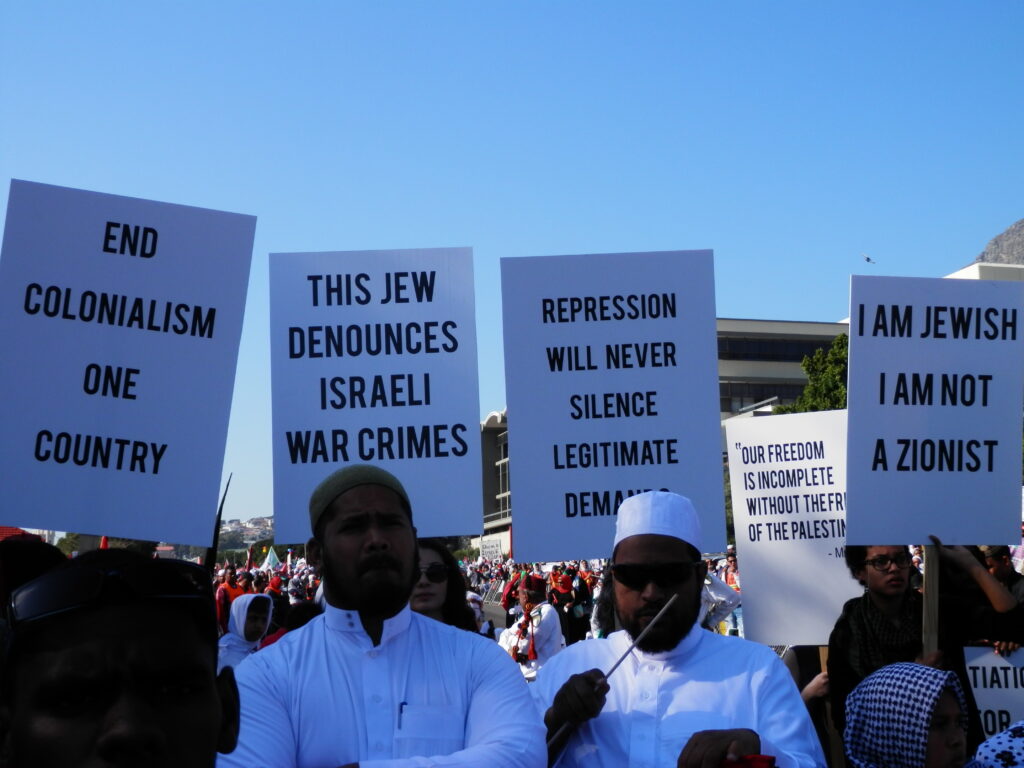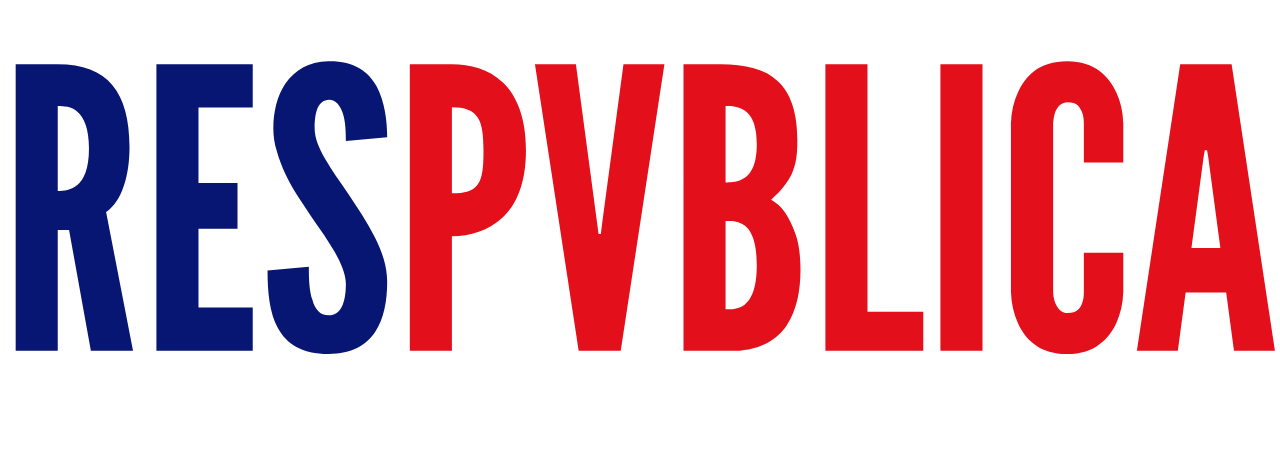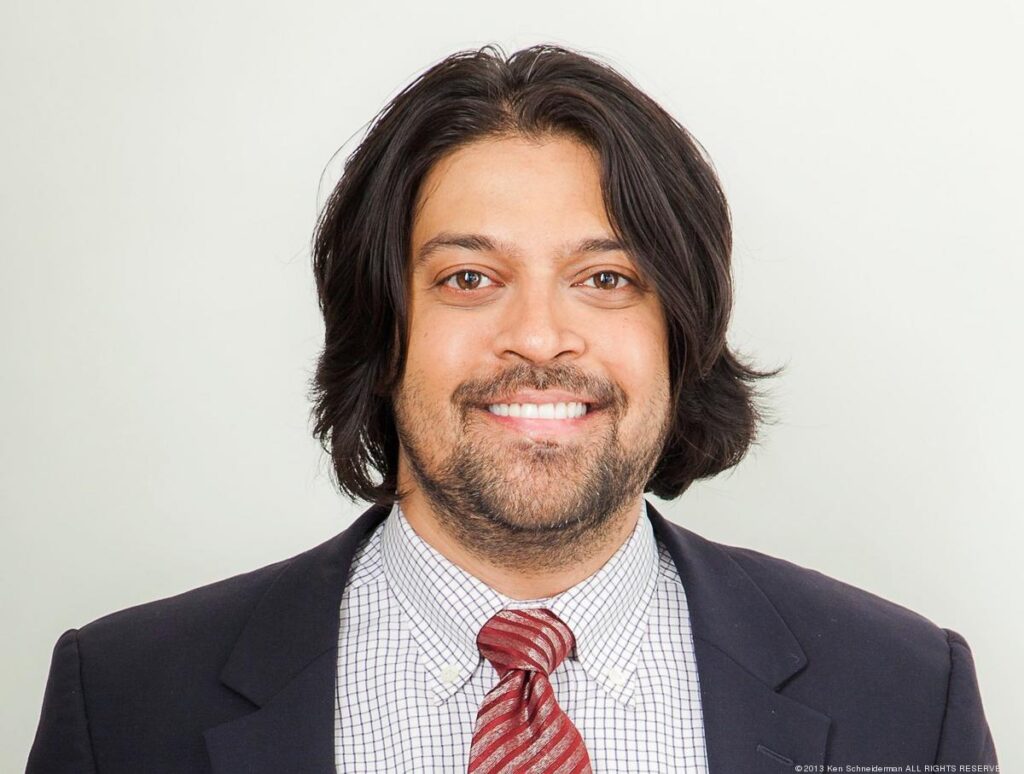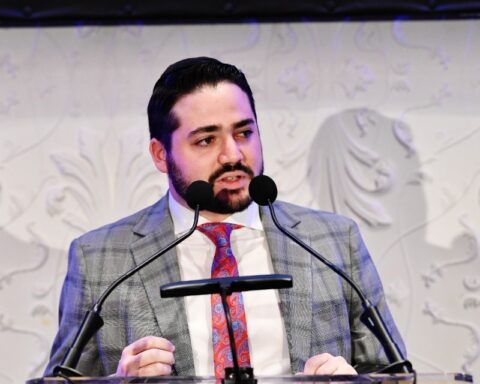By Ben Poser
As a year which culminated with President Trump’s historic decision to recognize Jerusalem as the capital of Israel draws to its close, let us remember with wicked grins the irrational international and media commune of Jew-hatred which predictably erupted into a self-disgracing avalanche of fury.
MSNBC in particular — sagely wise men like Chris Matthews for one — far exceeded SNL when cringing risibly at the president’s reality-drenched decision.
What we will also remember, however, was the response of America’s Jews.
The nagging leaders of the usual clownish, Israel-hating organizations like New Israel Fund, J Street, and Jewish Voice for Peace issued their comically somber, quavering press releases — even posting petitions to Congress to somehow de-certify the recognition. Still many Jews outside these openly ridiculous political organizations also followed suit.
Though the Union of Reform Judaism appears to have perused enough Torah to agree with the president that Jerusalem is the capital of Israel, “President Trump’s [statement was] ill-timed,” Rabbi Rick Jacobs, the Union’s president, said at the time. Reform Jews — America’s largest denomination — “cannot support his decision to begin preparing [the embassy] move now, absent a comprehensive plan for a peace process. …[T]he White House should not undermine these efforts by making unilateral decisions that are all but certain to exacerbate the conflict,” he added.
Rabbi Jacobs’ polite tepidness was among the warmer responses. More in tune with the broader trend was a lengthy, ever-growing list of professors of Jewish Studies. Their proud yet mortified petition reads:
We write as Jewish Studies scholars to express our dismay at the Trump administration’s decision to reverse decades of bipartisan U.S. policy by declaring Jerusalem the capital of Israel, and authorizing the relocation of the U.S. embassy from Tel Aviv, outside of a negotiated political framework that ends the legal state of occupation and ensures respect for the rights of all Israelis and Palestinians to Jerusalem.
Jerusalem is of immense religious and thus emotional significance to Jews, Muslims, and Christians alike. It is the focus of national aspirations for both Israelis and Palestinians. We hope one day to see a world in which all inhabitants of the land enjoy equal access to the city’s cultural and material resources. Today, unfortunately, that is not the case.
As the Israeli human rights organization B’Tselem has documented, Palestinian residents of Jerusalem endure systematic inequalities, including an inequitable distribution of the city’s budget and municipal services, routine denial of building permits that are granted to Jewish residents, home demolitions, and legal confiscation of property for Jewish settlement. In addition, Palestinians in the West Bank, unlike Jewish Israelis resident in that territory, require a special permit to visit Jerusalem’s holy sites.
In this context, a declaration from the United States government that appears to endorse sole Jewish proprietorship over Jerusalem adds insult to ongoing injury and is practically guaranteed to fan the flames of violence. We therefore call on the U.S. government to take immediate steps to deescalate the tensions resulting from the President’s declaration and to clarify Palestinians’ legitimate stake in the future of Jerusalem.
August members of the Senate also sought to distinguish themselves. The pro-Iran Deal Dianne Feinstein and self-styled socialist revolutionary Bernie Sanders displayed their Jewish credentials by tweeting respectively that the president’s decision “would be a terrible decision” and that it “would undermine the prospects for an Israeli-Palestinian peace agreement and severely, perhaps irreparably, damage our ability to broker it.”
Further farcical complaints abounded from The Forward and Los Angeles Times to Slate, Salon, and The Times of Israel.
Why are so many American Jews — their ancestors as native to Jerusalem as those of Bibi Netan’yahu — suddenly in the same camp as failure’s Jimmy Carter and Iran’s Ayatollah Khāmene’i as soon as President Trump makes the warmest gesture towards Israel an American president has made since May 14, 1948?

The answer, not surprisingly, lies in American Jews’ tangled psychology.
The Jews’ experience of millennia of genocidal anti-Semitism has made them reluctant to assert themselves in the same way as other peoples. So many centuries without an army and the right to bear arms have conditioned Jews to think that the only way to deal with threats to their safety is through either heroic suffering or conciliatory appeasement and “diffusion” of any ensuing violent situation. Any people subjected to the persecution Jews have endured would be seized by a fear of others’ hatred and a need to submissively diffuse it.
Another, less straightforward, factor is the Jewish need to impress one’s enemies with the unmatched quality of one’s moral character. Rooted in the Jewish religion, this idea originates from the divine transaction of Jews keeping God’s moral commandments in exchange for His eventual deliverance of them from their tormentors, and returning them to their hallowed homeland. (Only L’shanah ha-ba’ah b’Yerushalayim — “Next year in Jerusalem” — appears to have fallen out of fashion as the ultimate goal it once was.) This has led to many things, including the false sense of security into which Jews lull themselves, where they believe that their moral virtue will save them.
The legendary advocate for Israel Alan Dershowitz has summed up this Jewish delusion many times, but most eloquently at StandWithUs’s December 2, 2012 annual gala in Los Angeles:
There is morality in arms. There is morality in the use of force in defense of morality.
We learned a terrible, terrible lesson from the Sho’ah [Holocaust]. On the eve of the Sho’ah, many people believed that because the Jews were on the right side — because we had morality on our side — somehow we would prevail. It didn’t work. We had morality, but we didn’t have the military force, we didn’t have the power. So bless the IDF! One of the strongest armies in the world today — that uses its power in the interests of morality. Defend the Israel Defense Forces!
Still, for many Jews — mostly living in the comfort and safety of America — the pursuit of a form of moral excellence alone is apparently enough to achieve whatever salvation is their confused objective. The self-sufficience and self-responsibility inherent in raising an army has never been required of American Jews, who today enjoy the luxury of sitting back and wishing that Israel had the option of never confronting the tormentors who besiege it. They believe that their innate “goodness” will somehow endear them to those who set out to exterminate them (provided they are not Jews’ greatest existential threat today — the readers of Breitbart), and that this goodness will even change these adversaries.
This pursuit has been called “moral narcissism.” Jews and others, obsessed with their own moral image, campaign on behalf of those whom they must be unparalleled moral heroes to defend — namely their sworn enemies. For defending oneself is too practical and mundane to warrant the universe’s awe.
From this we can deduce that probably the greatest Jewish wish of the last thousand years is not for peace, power, or wealth, but for our enemies’ love. But where once it was a repressed, Freudian wish, today it is patently, if not proudly, obvious.
The pain of loneliness is a powerful emotion — especially when one’s only neighbors are generally one’s enemies. The enemy, through some untold miracle, finally coming to the realization of one’s true goodness and worthiness as a friend also means that one need no longer perform the draining toil of staying on-guard for one’s safety. Self-defense is difficult, tiring, and — bereft of this childish wish for respite — seemingly eternal.
Israeli Deputy Foreign Minister Tzipi Hotoveli had the courage to expose American Jews’ pathetic ignorance of their own people’s military situation when she told i24NEWS on November 22, 2017 that American Jews are “people that never send their children to fight for their country” and that “most of them are having quite convenient lives.”
She not only revealed that American Jews do not understand Israel, but silently explained the reason why.
Many Jews escaping the Christian pogroms of Europe — largely from the Pale of Settlement (the land partitioned by Russia in 1795, to which the tsar’s hated Jewish subjects were confined) — came to America’s shores from the collective, subsistence economy of the shtetl. There, the trio of Christianity, force of arms, and patriotism were always the most obvious threat to their lives. Of the three, however, Jews saw Christianity as the most seminally lethal.
Bundist socialism, born in Eastern Europe in 1897, served the need of giving Eastern European Jews a suitably collectivist movement to which to flock — but most importantly, one which opposed Christianity just as much as free market capitalism. Many Jews who later emigrated to America were either of this movement, or joined it subsequently. Their (at that time sometimes justified) fear and hatred of Christianity, coupled with the collectivist, socialist-prone ethical environment from which they came, in addition to all other Jewish qualities, is the reason for much of the Jewish hostility toward traditional American patriotism. (Among the richest of ironies is that one of America’s greatest and most popular advocates of Constitutional conservatism is talk radio host Mark Levin, a Jew whose family, too, originated from the Pale of Settlement.)
The expectable coldness with which a new people is welcomed into a country, along with the utter foreignness of rural, Christian American culture to urban, Eastern European Jews who spoke Yiddish and ate gefilte fish, was a further barrier. Furthermore, most Jews today are also thoroughly unaware that highly pro-Jewish sects of Christianity have become the dominant ones in America, while the more anti-Semitic sects of the old WASP country clubs have largely vanished — especially from conservative circles.
Jews still naturally gravitated to political and social movements which hit every note: advanced socialism, opposed Christianity, questioned America’s (however flawed) moral character, and even occasionally supported Soviet Communism. (In more recent years, some have leapt to embrace unworthy Third World causes — such as that of the Palestinians, an ethnic identity nursed on Nazism and officially fabricated by the KGB in 1964.)
But why, as Hotoveli asserted, are the United States Armed Forces today populated with so few Jews (especially when compared with the past)?
When wars came, Jews fought with humbling valor, but like all, were drafted. Some remarkable patriots did emerge from the ranks of the drafted, most notably composer Irving Berlin, whose deep love songs to his adopted land to this day bring tears to the American heart. The courage and sacrifice of those who served their nation in two World Wars, Korea, Vietnam, and beyond are also not a subject for critical discussion. Still, when the United States abolished the draft in 1973, Jewish service in the armed forces plummeted. Because there is no mandatory census of religious affiliation, the few sparse statistics available are only from self-reports in voluntary surveys — the most recent of which dating back nearly a decade to April of 2008. Of the 1,359,948 soldiers reporting, only 4,515 identified as Jews. Though the general size of the U.S. Army has shrunk massively since 1945 — and the 550,000 Jews who fought for the United States during the Second World War were drafted to fight a war far larger and lower-tech than any currently in process — the numbers are striking no less. While in visual form the ratio of Jews to Protestants and Catholics may seem to comfortably reflect the statistics of the American Jewish population (around 1.8%), the truth is that this statistic only represents a fraction of 1.8% of the U.S. Armed Forces. Discussion of these statistics is understandably insulting to many.
Hotoveli later apologized for her insightful remarks after being furiously attacked by enraged, spineless American Jews (including Rabbi Jacobs); but apologizing was her only mistake.
American Jews’ history of hostility to active American patriotism has been for the same reason that so many of them reacted with unbridled horror to their own country recognizing their own people’s eternal capital as their own, after 22 years of refusing to enforce a law its own Congress had passed to do precisely that.
“Strength was used against us — the people defined by morality — so to use it ourselves would be immoral,” American Jews seem to say. “Those terrible Christians murdered us during the Crusades, so why sink to the level of our murderers?” the liberal rabbi will say while thinking fondly of the utter lie of Islamic kindness towards Jews in the fictional multi-cultural paradise of medieval Spain. “It’ll just inflame hostilities and make peace — the ultimate goal — more difficult,” says the Jewish journalist or CNN-syndicated Middle East expert. “The Muslims were persecuted and colonized by the Christians, too. They’re our natural allies. Islam is a religion of tolerance. We just need to make peace and forge a better future for both peoples,” says a generic, glassy-eyed J Street spokesperson.
No Israeli needs to listen to such upside down, neurotic ramblings. Neither does President Trump.
Most American Jews, as defined by their history and ideological dispositions, are thoroughly disqualified from dictating, let alone authoritatively commenting upon, Israeli policy — especially when they are the ones holding Israel’s actions to an intensely ridiculous double standard.
The 78, 69, and 71% of American Jews who voted for Barack Obama and Hillary Clinton in the 2008, 2012, and 2016 presidential elections cements their eternal reputation as Jews who passionately supported active opponents of Israel’s existence as a unique, sovereign Jewish state. Therefore, every Israeli should respect American Jewish opinion as much as black Americans should respect that of black slave-owning North Sudan.
Still, while it would be mendacious and unjust to forget that a small but determined minority of American Jews — whether firmly Orthodox (like Ben Shapiro and Dennis Prager) or simply patriotic conservatives (like Levin) — have managed to fly above the mine-laden train track leading to the catastrophe which Jewish liberalism has wrought, this heroic minority neither speaks with the official voice of the American Jewish community, nor do their numbers generally elect the required presidents and pro-Israel policy-makers. It is true that they may turn the tide in the yonder fullness of time, but for the moment their courage has not been rewarded with the power to win the desperately needed hearts and minds.
Israeli Prime Minister Bin’yamin Netan’yahu and President Donald Trump link arms at the Israel Museum in Jerusalem — May 23, 2017. (Sebastian Scheiner / AP)
But for the majority, the truth is clear. Since so many American Jews, with all their telling history behind them, believe that the Netan’yahu government is “extreme” and “racist,” Donald Trump “IS” an anti-Semite, and the justification for Israel’s continued existence supposedly is the “peace process,” it is no wonder that Trump’s recognition of Jerusalem as Israel’s eternal capital — regardless of all other threats — is what they find a bit too much to bear.
American Jews are terrified of and offended by President Trump’s support for Israel, not to mention one led by an uncompromising patriot like Netan’yahu, for they feel it is a defeat of their pursuit of moral perfection, quest for their enemies’ love, and liberal revenge against (even pro-Jewish) American Christianity. It is indeed a defeat, and by all means a reason to be ashamed, when such a blessing — closing out the golden jubilee year of the re-capture of Jerusalem no less — is cause for such blatant resentment.
One thing is clear. America’s cowardly liberal Jews can be sure their brethren were much safer and far more morally superior in 1949 when Jerusalem was divided, Judenrein, and with its 58 ancient synagogues dynamited by the Jordanians.
Only the most prosperous and prominent Jews on earth could think such twisted things.






